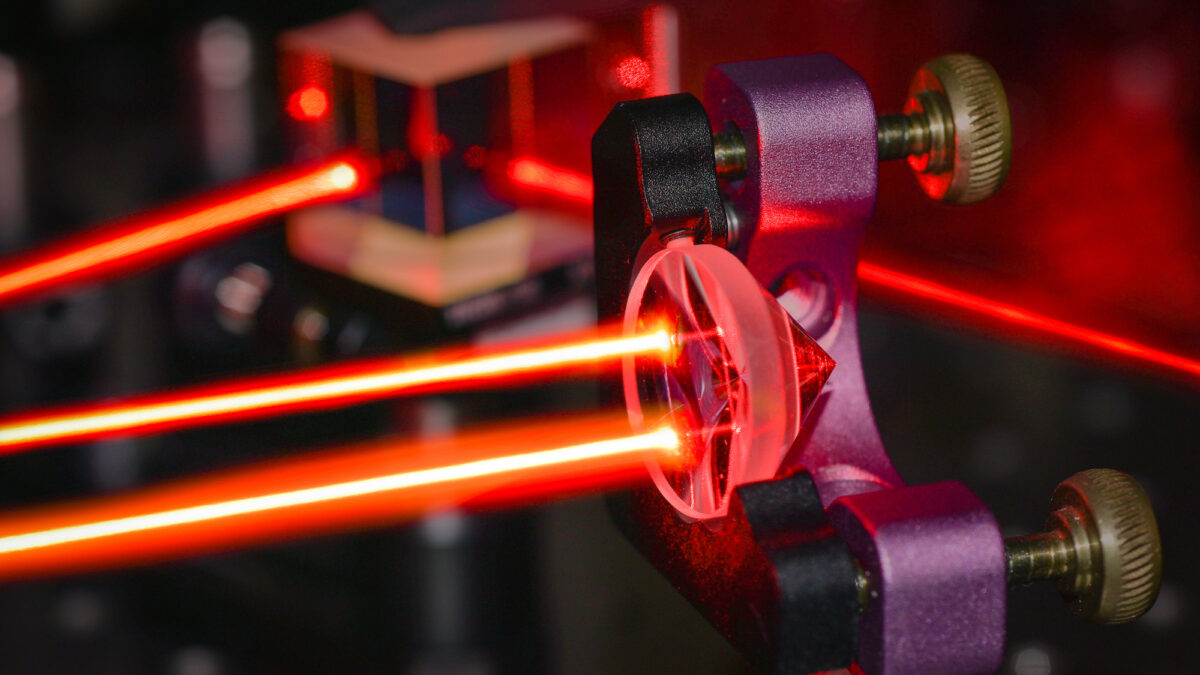A Scottish university is launching a dedicated facility for its quantum research and development projects.
The University of Glasgow, which has a reputation as one of the leading quantum institutes in the UK, is officially unveiling its Centre for Quantum Technology today.
The university’s researchers have previously harnessed quantum physics to develop “exquisitely-sensitive” gravity detectors the size of a golf ball, cameras which see inside the human body with precision, and advanced forms of secure communication.
It is hoped the new centre will build on the university’s expertise and experience in quantum technology, finding new economic and societal benefits for the country as well as consolidating its research and teaching base.
The facility is being revealed during a special event at the SPIE Photonex + Vacuum Technologies conference, which is currently underway in Glasgow’s Scottish Event Campus (SEC).
This news comes as the university opens applications for a $1 million scholarship fund for graduate student recruitment, supported with funding from SPIE, the international society for optics and photonics – the study of the fundamental properties of light and harnessing them in practical applications.
The launch of the centre is the latest development for quantum research at the university. It already leads QuantIC, the UK Quantum Technology Hub in Imaging, which was launched in 2014 as part of the £1bn UK National Technologies Programme.
Glasgow researchers also contribute to the three other quantum technology hubs launched at the same time, and are currently working with more than 50 industrial partners.
Additionally, the university’s James Watt Nanofabrication Centre and its commercial arm, Kelvin Nanotechnology Ltd, have helped create many of the “cutting-edge” components which underpin new quantum technologies in areas including computing, imaging, communications and sensors.
Some of the technologies developed by academic experts include Wee-G, a gravitational sensor capable of mapping geological structures and providing advance warning if impending volcanic eruptions; endoscopes the width of a human hair which can provide new ways of imaging inside the body; and optical networks, which use uncrackable quantum key distribution to make communications more secure.
Professor Miles Padgett, the centre’s director, is speaking at the launch event today.
He said: “We’re proud to be officially launching the Centre for Quantum Technology at the SPIE Photonex + Vacuum Technologies conference today. Over the last decade, the University of Glasgow has grown a quantum research activity to become one of the largest quantum centres in the UK.
“The university is home to many of the leading engineers, physicists, and computing scientists working quantum research in the UK. The technology they are pioneering has wide-ranging applications across physical and biological sensing and imaging, secure communication and advanced computing.
“The centre aims to further build on these strengths and develop new commercial partnerships, translate fundamental research into new products, and to attract and retain the best researchers and students to the city.
“To that end, we’re delighted to have the support of the SPIE Endowment Matching Program to help us encourage the next generation of quantum researchers in academia and in industry. We’re looking forward to welcoming the programme’s first inductees to our new Advanced Research Centre, set to open next year, which will be home to many of our quantum research projects.”
Specialists in the field of technology say today’s announcement builds upon the “established quantum technology expertise across Glasgow”, including the likes of the Fraunhofer Centre for Applied Photonics and the University of Strathclyde’s Quantum Technology Cluster.
It is expected the advancement of quantum will open up opportunities to develop more secure data communications and improved health technologies.
Businesses like Glasgow-based M-Squared lasers are leading the development of advanced quantum applications and have their technologies applied into industries like space, healthcare and food and drink.
Glasgow University has received $500,000 (£425,000) from the SPIE Endowment Matching Program, which has been 100 per cent matched by the university, creating a fund worth a total of $1m (£850,000).
The SPIE ‘early career researcher accelerator fund in quantum photonics’ supports two new schemes at the university. The first is an annual SPIE ‘early career researcher in quantum photonics scholarship’, awarded to an outstanding University of Glasgow graduate student who is in the process of completing their studies.
The second is the SPIE ‘global early career research programme’ to support outgoing and incoming placements at and from the university as part of its ongoing collaboration with leading quantum-photonics research groups across the globe.
Each year, the programme will pair several university early-career researchers with counterparts from outside laboratories for six-month-long shared projects.
When the programme was announced, 2020 SPIE President John Greivenkamp said: “We are delighted to be participating in these exciting endeavours with the University of Glasgow.
The interactive placements will offer transformative opportunities for the university’s academic and industry-based researchers, and, together with the annual scholarship, will develop well-prepared, knowledgeable early-career researchers who will drive the future of the quantum industry.”




